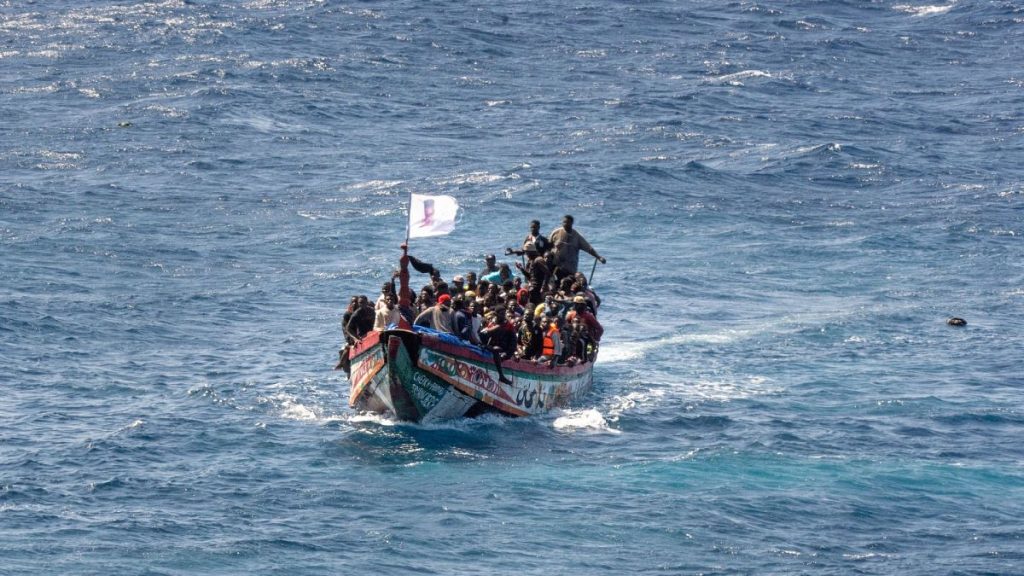The perilous journey across the Atlantic to the Canary Islands claimed the lives of over 60 migrants in early August, a tragedy highlighting the deadly risks undertaken by those seeking refuge or better opportunities in Europe. Out of approximately 80 passengers aboard the ill-fated vessel, only 11 survived the harrowing ordeal, leaving a grim toll of lives lost at sea. Malian authorities confirmed the devastating news, identifying 25 of their citizens among the victims, while nine Malian nationals were fortunate enough to be rescued. This incident underscores the precarious nature of the Atlantic migration route, often considered one of the deadliest pathways to Europe.
The Canary Islands, an archipelago located closer to the African coast than mainland Spain, serve as a gateway for many migrants hoping to reach continental Europe. This proximity makes the islands a seemingly attainable target for those fleeing hardship, violence, and instability in their home countries, predominantly in West Africa. The tragedy highlights the desperation driving individuals and families to embark on such perilous journeys, often with limited resources and facing immense uncertainty. Among the deceased Malians, a significant number originated from the Kayes region in western Mali, a poignant testament to the impact of this tragedy on specific communities.
The Kayes region, like many parts of West Africa, faces economic hardship, political instability, and environmental challenges, factors that contribute to the exodus of its population seeking better prospects elsewhere. The victims, many of whom were young men, sought to escape these dire circumstances, initially finding work in Mauritania’s construction industry. However, the allure of a more prosperous life in Europe or America, fueled by communication with friends and relatives abroad, led them to embark on the fateful journey. This tragic incident underscores the powerful influence of social networks and the often unrealistic portrayal of life abroad, which can lead individuals to make risky decisions with devastating consequences.
The decision to undertake the perilous journey across the Atlantic is often made without the knowledge of family members back home, adding another layer of tragedy to the loss. The mayor of Marena commune in the Kayes region, where several of the victims originated, revealed that the young men had left their community seven months prior to work in Mauritania, unbeknownst to their families that they would eventually attempt the dangerous sea crossing. This secretive departure underscores the complex dynamics within families and communities grappling with migration, where individuals may feel compelled to conceal their plans due to fear, shame, or the desire to protect their loved ones from worry.
The mayor’s account also sheds light on the lure of perceived opportunities abroad and the influence of social networks in shaping migration decisions. The young men, having established contact with friends and relatives in Europe and America, were likely exposed to stories of success and a better life, which contrasted sharply with their own experiences in Mauritania. This exposure, combined with the inherent challenges and limited opportunities in their home region, fueled their desire to seek a more promising future elsewhere. However, the reality of the journey often proves far more dangerous and precarious than envisioned, leading to tragic outcomes like this maritime disaster.
This latest tragedy serves as a stark reminder of the ongoing humanitarian crisis unfolding in the Atlantic, where countless lives are lost each year in pursuit of a better future. The perilous journey to the Canary Islands, driven by a complex interplay of economic hardship, political instability, and the allure of opportunities abroad, continues to claim victims. The story of the young men from Kayes, who left their community in search of better prospects only to perish at sea, highlights the urgent need for international cooperation and comprehensive solutions to address the root causes of migration and to provide safe and legal pathways for those seeking refuge or a better life. Ultimately, this tragedy underscores the human cost of desperation and the urgent need for a more humane and effective approach to migration management.










